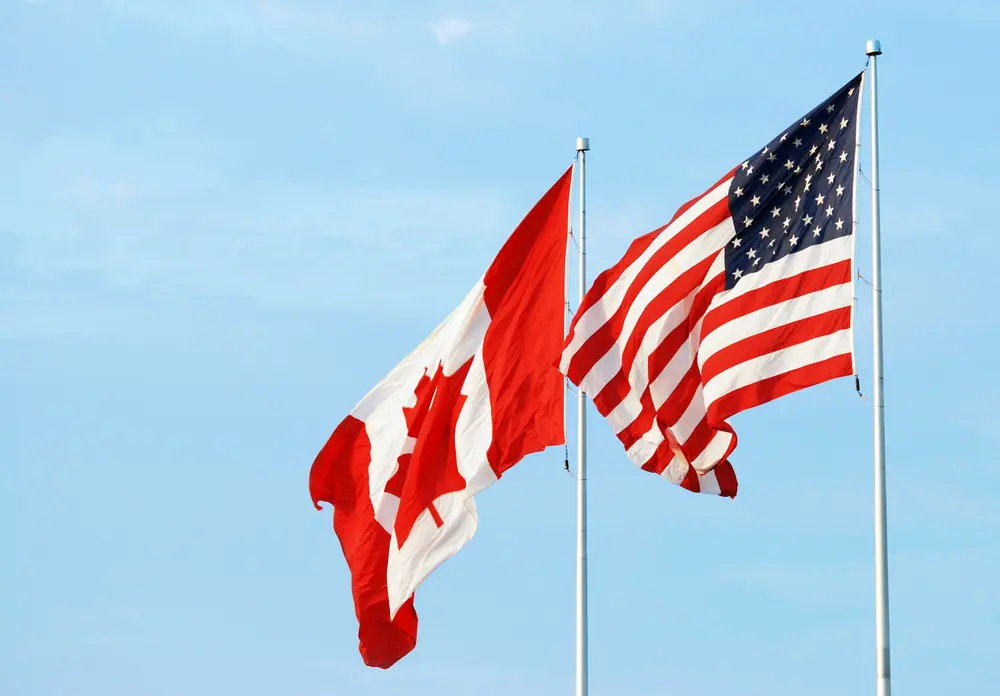
Embarking on a journey from the United States to Canada is an adventure filled with diverse landscapes, rich cultural experiences, and unforgettable moments. Whether you’re planning a weekend getaway to the vibrant city of Toronto, seeking outdoor thrills in the Rockies of Alberta, or simply have to travel to Canada for any reason, this text is your guide to everything you need to know about crossing the border and discovering the wonders that await in Canada.
What documents do I need to enter Canada?
When entering Canada from the United States,the list of requirements is as follows:
- A valid passport or travel document.
- An Electronic Travel Authorization (eTA) if you are a citizen of a visa-exempt country and are flying to Canada. You can apply for an eTA online.
- A visa if you are a citizen of a visa-required country. You can apply for a visa at a Canadian embassy or consulate.
- A completed ArriveCAN form. This is an electronic form that collects information about your travel plans and vaccination status. You can complete the ArriveCAN form online or on the ArriveCAN app.
To find the complete list of countries and the visa/eTA specificities for each one of them, check out the official website of the Canadian government.
Other than that, at the border you may be asked to provide proof of your purpose of travel, of funds to support your stay in Canada, and a return ticket or onward travel documentation.
Also, keep in mind that these requirements are subject to change, so it is always best to check the latest information before you travel.
What are the Covid travel restrictions to go from the U.S. to Canada?
Currently, there are no COVID-19 travel restrictions in place for travel between the United States and Canada. This means that all travelers, regardless of vaccination status, can enter Canada without proof of vaccination, a pre-arrival test, or a quarantine requirement.
However, it is important to note that the COVID-19 situation is constantly evolving, and these restrictions could change at any time. It is always best to check the latest travel advisories before you travel.
What are the rules for traveling with children and minors to Canada?
Traveling with children to Canada can be a fun and exciting experience. However, it’s important to be aware of the rules and regulations governing the entry of minors into the country. Here are the basic rules for traveling with children to Canada:
- All children under the age of 18 are considered minors in Canada.
- Minors must have a valid passport or travel document to enter Canada.
- If a minor is traveling with only one parent or legal guardian, they must have a letter of authorization from the other parent or guardian, signed by the non-traveling parent or guardian and must include the name and date of birth of the child, the name and contact information of the traveling parent or guardian, the dates of the child’s travel, and the non-traveling parent’s consent for the child to travel.
Also, make sure your children have their passports and any other required travel documents well in advance of your trip. Pack plenty of snacks and activities to keep your children entertained during the long journey, be prepared for delays and other unexpected events, and, most importantly, relax and enjoy your trip!
Do I need medical insurance when visiting Canada?
Canada has a universal healthcare system that provides basic medical care to all citizens and permanent residents. However, visitors to Canada are not covered by this system. This means that you will be responsible for the cost of any medical care you receive while in Canada.
The cost of medical care in Canada can be expensive, even for basic services. For example, a visit to the doctor can cost over $200, and a hospital stay can cost thousands of dollars. If you do not have medical insurance, you could be left with a large bill.
For this reason, it is strongly recommended that you purchase medical insurance before you visit Canada. Medical insurance can help to cover the cost of medical care, so you will not have to worry about paying for it out of pocket.
How do I enter Canada by car, from the U.S.?
Entering Canada by car from the US is a relatively straightforward process. However, there are a few things you need to do to make sure your crossing goes smoothly.
Here are the steps involved in entering Canada by car from the US:
- Choose a border crossing. There are many border crossings between the US and Canada. Choose a crossing that is convenient for you and that is open during your planned travel time.
- Arrive at the border crossing early. Border crossings can get busy, especially during peak travel times. It is a good idea to arrive at the border crossing early to avoid delays.
- Present your documents. When you arrive at the border crossing, proceed to the booth where an officer will ask you a few questions. Be prepared to present your documents and answer questions about your purpose of travel, how long you plan to stay in Canada, and where you are staying. Also, be prepared to pay a border crossing fee – which varies depending on the crossing you use.
Can I drive a rental car from the U.S. to Canada?
First things first, not all rental car companies are created equal when it comes to crossing borders. Many major rental car companies do allow their vehicles to cross the U.S.-Canada border, but there are nuances to consider. When booking your rental car, ensure you opt for a company that permits cross-border travel.
In order to find the best option for your trip, search on the Rentcars website or app adding the dates and pickup/dropoff points to find the car and company that best suits your needs!
Conclusion
To sum up, the basic requirements to enter Canada from the United States are a valid passport from your country of citizenship, as well as having the needed visa/travel permit. In addition, you may be asked to provide proof of your purpose of travel, of funds to support your stay in Canada, and a return ticket or onward travel documentation.
At the moment, there are no COVID-19 travel restrictions in place for travel between the United States and Canada, but always check the latest travel advisories before you travel.
If you are driving a rental car from the U.S. to Canada, not all rental car companies allow their vehicles to cross the border. When booking your rental car, ensure you opt for a company that permits cross-border travel!







Leave a Reply